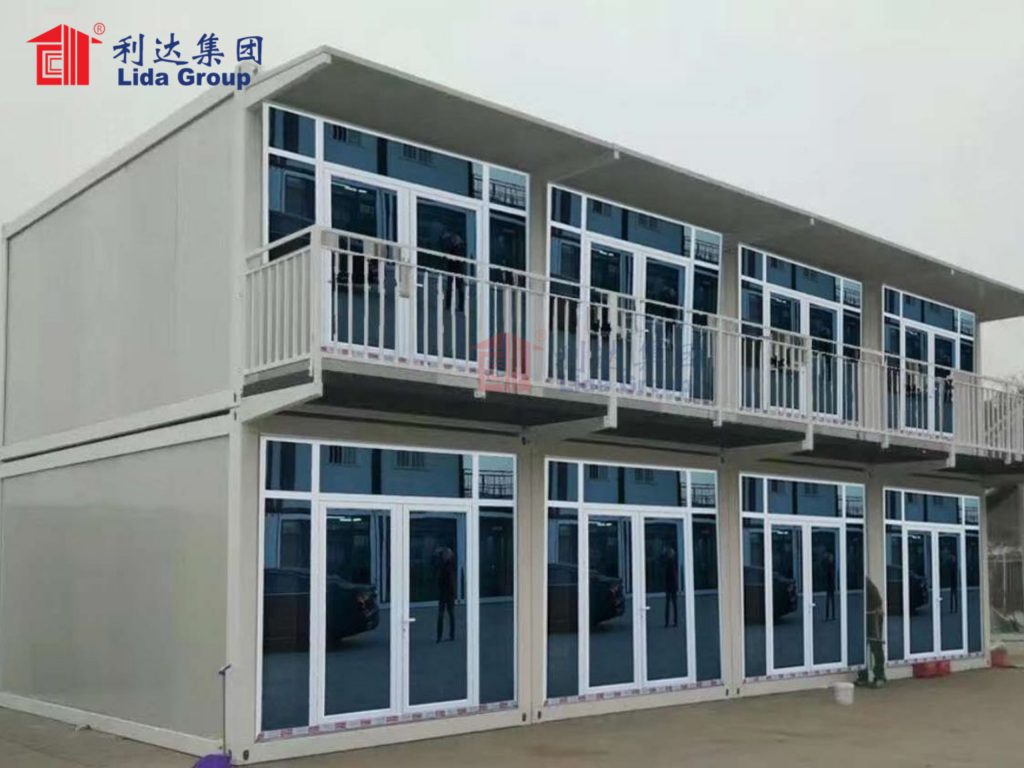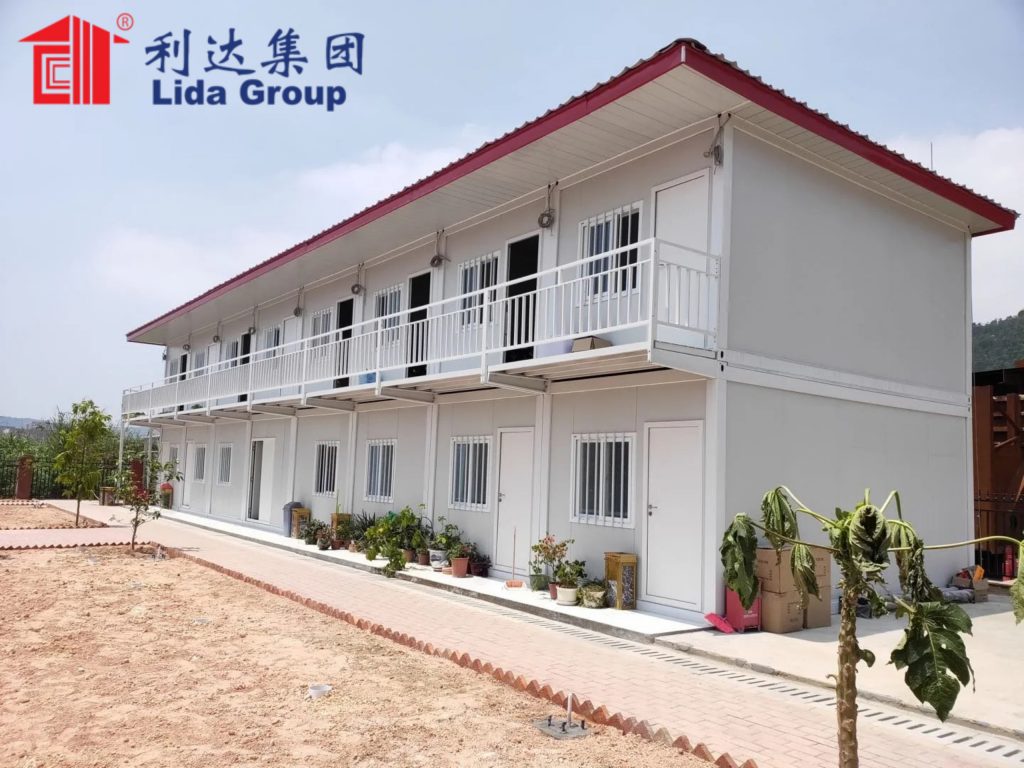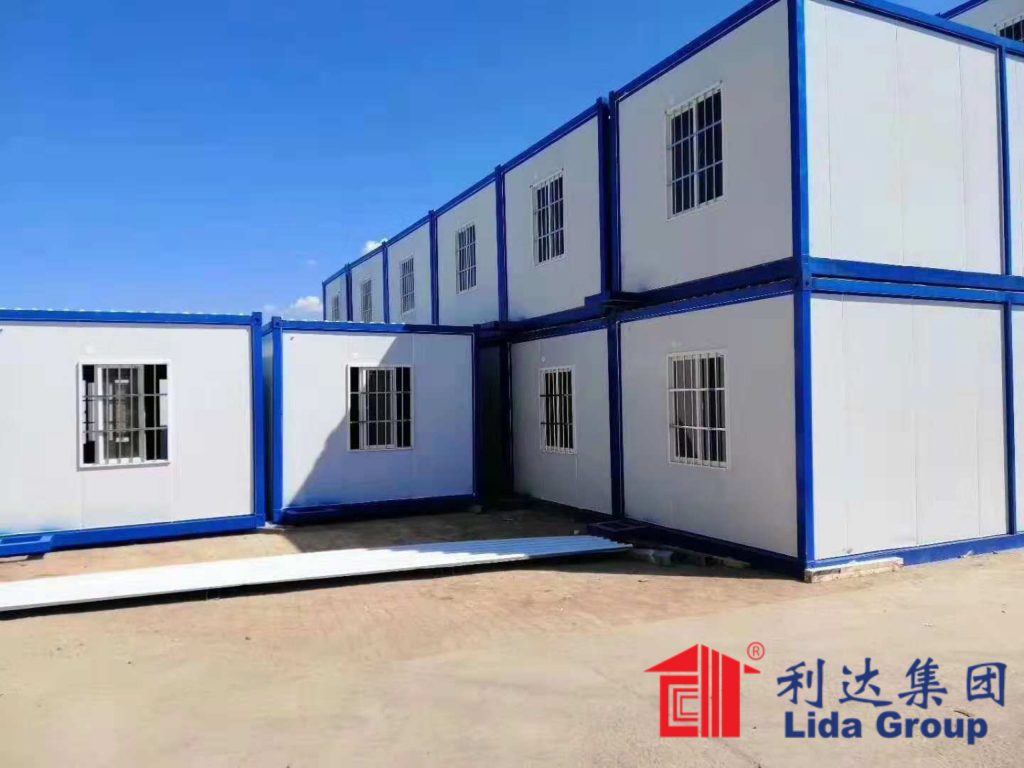The Rise of Modular Prefab Houses
In recent years, the construction industry has witnessed a significant transformation with the advent of modular prefab houses. These innovative structures are prefabricated in factories and then transported to their final locations for assembly. This method contrasts sharply with traditional on-site construction, which often involves lengthy timelines, high labor costs, and frequent delays due to weather or logistical issues. Modular prefab houses offer several advantages that make them an attractive option for modern housing needs.
Firstly, the speed at which these homes can be constructed is remarkable. By manufacturing components in controlled factory environments, builders can significantly reduce the time required for each project. This not only leads to faster occupancy but also allows developers to meet tight deadlines more effectively. Additionally, the precision afforded by factory production minimizes errors and ensures consistent quality across all units.
Secondly, cost-effectiveness is another key benefit. Since much of the work is done off-site, there is less reliance on expensive on-site labor, thereby reducing overall project costs. Moreover, the controlled conditions in factories lead to fewer material wastages, further cutting down expenses. This efficiency makes modular prefab houses particularly appealing to budget-conscious buyers and developers alike.
Lastly, sustainability is increasingly becoming a priority in today’s world, and modular prefab houses are well-positioned to address this need. The ability to recycle materials and minimize waste during production aligns with environmental goals. Furthermore, many companies incorporate eco-friendly technologies such as solar panels and energy-efficient insulation into these homes, contributing to reduced carbon footprints.
The introduction of Lida Group’s modular prefab houses marks a new era in residential construction. By leveraging advanced technology and streamlined processes, Lida Group aims to provide high-quality living spaces while addressing contemporary challenges related to urbanization and environmental conservation. Their commitment to innovation sets them apart in an industry that is ripe for change.
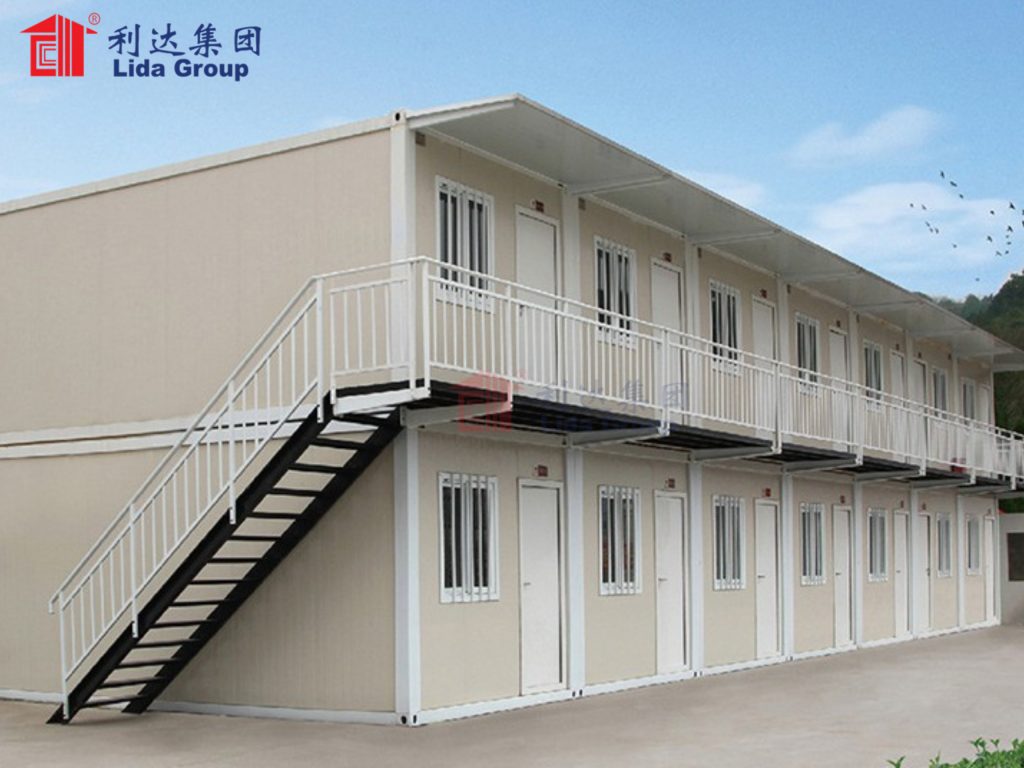
Overview of Lida Group
Lida Group has emerged as a pioneering force in the construction sector, specializing in the development of modular prefab houses. Established with a vision to revolutionize housing through innovative solutions, the company has quickly gained recognition for its forward-thinking approach and commitment to quality. With headquarters strategically located to optimize logistics and access to key markets, Lida Group operates a network of state-of-the-art factories equipped with cutting-edge technology. These facilities enable the company to produce high-quality modules efficiently and sustainably, ensuring timely delivery to various project sites.
At the core of Lida Group’s operations lies a robust research and development team dedicated to pushing the boundaries of what modular prefab houses can achieve. By continuously exploring new materials, designs, and construction techniques, the company stays ahead of industry trends and meets the evolving needs of its customers. The integration of advanced technologies such as Building Information Modeling (BIM) and automated manufacturing systems enhances precision and productivity, allowing for the creation of customizable yet standardized units that meet stringent quality standards.
Lida Group’s market position is bolstered by its extensive portfolio of successful projects and strong partnerships with leading architects, engineers, and contractors. Through collaborative efforts, the company has been able to deliver diverse housing solutions ranging from single-family homes to large-scale residential complexes. This versatility underscores Lida Group’s capability to adapt to different market demands and client specifications, solidifying its reputation as a leader in the modular prefab housing sector.
Key Features and Innovations of Lida Group’s Modular Prefab Houses
Lida Group’s modular prefab houses stand out for their innovative design and functionality, incorporating a range of features that enhance both comfort and practicality. One of the most notable aspects is the emphasis on space optimization. Each module is meticulously designed to maximize usable area, utilizing clever storage solutions and multi-functional furniture to create a spacious feel within compact dimensions. For instance, walls can double as bookshelves, and beds may fold up to reveal hidden desks, making efficient use of every square inch.
Another standout feature is the seamless integration of smart home technologies. Residents can control lighting, temperature, security systems, and even appliances through centralized interfaces or mobile apps. This level of automation not only provides convenience but also contributes to energy efficiency. Smart thermostats adjust heating and cooling based on occupancy patterns, while motion sensors ensure lights are turned off when rooms are unoccupied, reducing overall energy consumption.
Sustainability is woven into the very fabric of Lida Group’s designs. The company utilizes environmentally friendly building materials, such as recycled steel and bamboo, which are both durable and renewable. In addition, each house is equipped with solar panels and rainwater harvesting systems, promoting self-sufficiency and reducing reliance on external utilities. High-performance insulation and energy-efficient windows further minimize heat loss and gain, creating comfortable interiors year-round while lowering utility bills.
Moreover, Lida Group places a strong emphasis on aesthetic appeal. Modern, minimalist exteriors are complemented by sleek, functional interiors that cater to contemporary tastes. Customizable options allow clients to personalize their homes, selecting finishes, colors, and layouts that reflect their unique preferences and lifestyles. Whether it’s a cozy family retreat or a stylish urban dwelling, Lida Group offers a versatile range of choices to suit diverse needs.
These features collectively underscore Lida Group’s dedication to providing not just homes, but holistic living solutions that prioritize comfort, efficiency, and sustainability. By integrating advanced technology with thoughtful design, the company is redefining the future of residential construction.
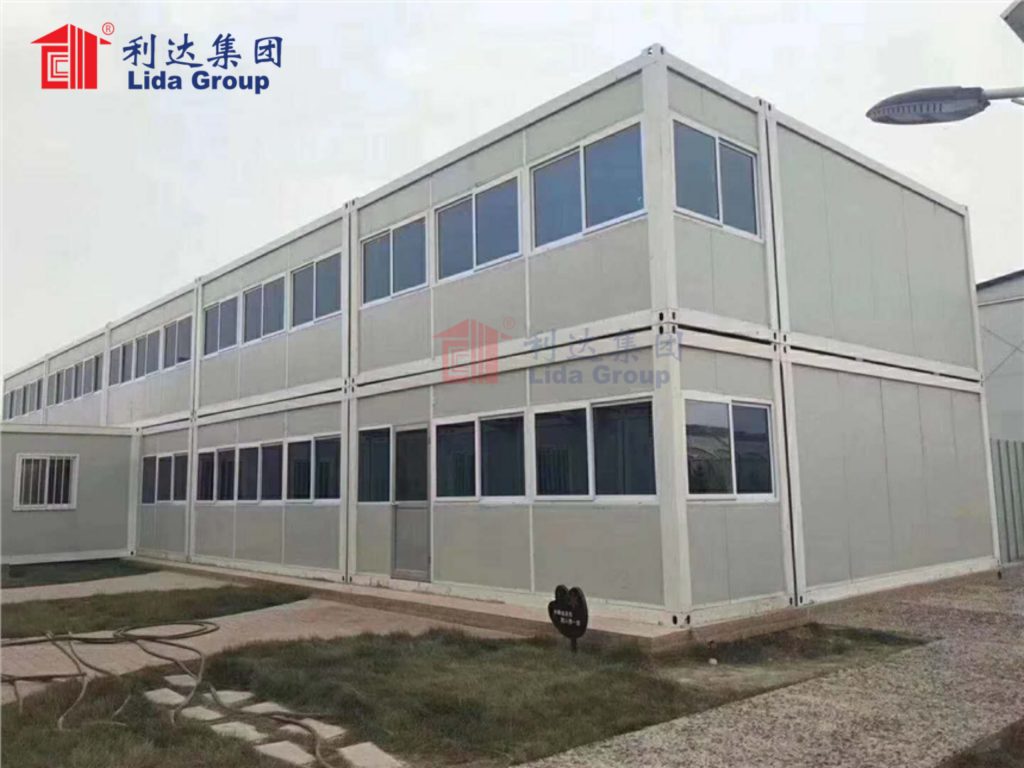
Construction Process of Lida Group’s Modular Prefab Houses
The construction process of Lida Group’s modular prefab houses is a testament to the company’s commitment to efficiency and quality. It begins with meticulous planning and design phases, where architects and engineers collaborate using advanced Building Information Modeling (BIM) software. This digital tool allows for precise visualization and coordination of every aspect of the project, from structural elements to interior finishes. BIM facilitates seamless communication among all stakeholders, ensuring that every detail is accounted for before production commences.
Once the design phase is complete, the actual manufacturing takes place in Lida Group’s highly automated factories. Here, each component of the modular units is fabricated under strict quality control measures. Advanced machinery and robotics handle tasks such as cutting, welding, and assembling materials, minimizing human error and ensuring consistency across all modules. The use of lean manufacturing principles helps streamline workflows, reducing waste and optimizing resource utilization.
One of the critical steps in the construction process is the transportation of modules to the building site. To ensure safe and efficient delivery, Lida Group employs specialized logistics teams who carefully plan routes and schedules. Modules are securely packaged and loaded onto trucks equipped with stabilization systems to prevent damage during transit. Upon arrival at the destination, the modules are swiftly assembled using cranes and other heavy machinery, following a pre-determined sequence that guarantees structural integrity and alignment.
Quality assurance is a continuous process throughout the entire construction cycle. From initial raw material inspections to final on-site checks, rigorous testing protocols are implemented to verify compliance with safety and performance standards. This includes stress tests, water penetration tests, and thermal performance assessments, among others. By maintaining stringent oversight, Lida Group ensures that each completed unit meets the highest levels of durability and reliability.
In summary, the construction process of Lida Group’s modular prefab houses combines cutting-edge technology with rigorous quality controls. From initial design through to final assembly, every step is optimized for efficiency, accuracy, and sustainability. This systematic approach not only accelerates the construction timeline but also delivers superior results, setting a new benchmark for the industry.
Advantages of Modular Prefab Housing in Urban Areas
Modular prefab houses offer numerous advantages for urban areas, particularly in addressing pressing issues such as limited space, rapid population growth, and environmental sustainability. One of the primary benefits is the efficient use of space. Given the constraints of urban land availability, these homes are designed to maximize usable area without compromising on comfort. Their compact yet flexible layouts allow for creative solutions, such as vertical expansions and shared communal spaces, which are essential in densely populated cities.
Moreover, the fast-paced nature of urban development requires quick turnaround times for new housing projects. Modular prefab construction significantly reduces the time needed to build homes compared to traditional methods. Factory-produced modules can be assembled on-site in a fraction of the time, enabling residents to move in sooner. This speed is crucial in meeting the growing demand for affordable housing in expanding urban centers, helping alleviate overcrowding and homelessness.
Environmental sustainability is another critical factor. Urban areas are often characterized by high levels of pollution and resource consumption. Modular prefab houses contribute positively to these challenges by incorporating green technologies and sustainable practices. For example, the use of renewable energy sources like solar power and rainwater harvesting systems decreases reliance on non-renewable resources. Additionally, the modular construction process generates less waste and consumes fewer materials than conventional building methods, reducing the overall environmental footprint.
Furthermore, the adaptability of modular prefab houses makes them ideal for urban settings. As cities evolve, so do their infrastructural needs. These homes can be easily modified or expanded to accommodate changing requirements, whether it’s adding additional floors or integrating new technologies. This flexibility ensures that the housing stock remains relevant and functional over time, supporting long-term urban planning objectives.
In essence, modular prefab houses present a viable solution for enhancing urban living. They offer a balance between efficiency, affordability, and sustainability, addressing the multifaceted challenges faced by modern cities. By embracing this innovative construction method, urban areas can foster healthier, more livable communities while advancing towards a greener future.
Case Studies: Successful Applications of Lida Group’s Modular Prefab Houses
Several case studies illustrate the successful application of Lida Group’s modular prefab houses in various contexts, highlighting their versatility and effectiveness. In one prominent example, a rapidly developing city in Asia faced severe housing shortages due to unprecedented urban migration. The local government partnered with Lida Group to construct a series of affordable housing complexes. Leveraging the speed and efficiency of modular prefab construction, Lida Group delivered over 500 units within a remarkably short timeframe. These homes were designed to be both functional and aesthetically pleasing, featuring integrated smart home technologies and sustainable materials. The project not only alleviated immediate housing pressures but also set a precedent for future developments in the region.
Another compelling case comes from a European country where aging infrastructure and rising property prices posed significant challenges. A real estate developer collaborated with Lida Group to introduce a new concept of modular apartment buildings in the heart of the city. These buildings incorporated multiple floors of modular units, each equipped with energy-efficient systems and adaptable layouts to cater to diverse tenant needs. The success of this initiative was evident in its widespread adoption, as it provided a practical solution for accommodating young professionals and families seeking affordable urban living spaces. The project received accolades for its innovative approach and positive impact on community development.
In North America, a coastal city grappling with natural disasters sought resilient housing solutions capable of withstanding extreme weather conditions. Lida Group responded by designing storm-resistant modular homes that could be rapidly deployed and easily relocated if necessary. These homes featured reinforced structures and advanced insulation to protect against hurricanes and floods. The implementation of this project demonstrated the potential of modular prefab houses to offer robust, disaster-resilient housing options, thereby enhancing community resilience and safety.
Each of these examples underscores how Lida Group’s modular prefab houses have successfully addressed specific regional challenges, proving their adaptability and efficacy across different geographical and socio-economic contexts. These projects not only showcase the technical capabilities of modular construction but also highlight its broader implications for improving quality of life and fostering sustainable urban development.
### Comparison with Traditional Housing Solutions
When comparing Lida Group’s modular prefab houses to traditional housing solutions, several distinctions become apparent. Firstly, the construction timeline stands out as a major advantage for modular prefab houses. Traditional construction methods often involve prolonged periods due to factors such as adverse weather conditions, logistical complexities, and unforeseen delays. In contrast, the controlled environment of factory-based manufacturing allows for faster production cycles, resulting in quicker completion times. Projects that might take months or even years using conventional methods can be finished in weeks with modular prefab construction.
Cost-effectiveness is another critical point of differentiation. Traditional housing typically incurs higher labor costs due to the extensive manual work involved in on-site construction. Conversely, modular prefab houses benefit from streamlined production processes and economies of scale, reducing overall expenditures. Additionally, the minimized waste generated during factory fabrication lowers material costs, making these homes more affordable for consumers. The financial savings extend beyond initial construction, as the energy-efficient features inherent in modular prefab designs lead to lower utility bills over the lifespan of the home.
Environmental impact is a third key consideration. Traditional construction practices often result in substantial waste and emissions, contributing to environmental degradation. Modular prefab houses, however, are engineered with sustainability in mind. The use of recycled materials, coupled with precision manufacturing that reduces excess, significantly cuts down on waste. Furthermore, the incorporation of renewable energy sources and eco-friendly technologies in these homes minimizes their carbon footprint, aligning with global efforts to combat climate change.
From a consumer perspective, the benefits of modular prefab houses are manifold. Homeowners appreciate the blend of customization and standardization, allowing them to tailor their living spaces according to personal preferences without sacrificing quality. The ease of assembly and disassembly also provides greater mobility and adaptability, catering to those with transient lifestyles or evolving needs. Additionally, the enhanced comfort and safety features, such as advanced insulation and secure locking mechanisms, contribute to a superior living experience.
In conclusion, Lida Group’s modular prefab houses offer a compelling alternative to traditional housing solutions. Their shorter construction timelines, cost efficiencies, and reduced environmental impact make them an attractive option for both developers and homeowners. By prioritizing innovation and sustainability, Lida Group continues to redefine the landscape of modern residential construction.
Conclusion
In conclusion, Lida Group’s modular prefab houses represent a transformative advancement in the realm of modern housing solutions. By combining unparalleled speed and efficiency with high-quality construction, these homes address critical urban challenges such as space constraints, rapid population growth, and environmental sustainability. The streamlined manufacturing process, coupled with cutting-edge technology and sustainable materials, not only accelerates construction timelines but also ensures cost-effectiveness and minimal environmental impact. This innovative approach fosters a new paradigm in residential development, offering adaptable and resilient living spaces that meet the diverse needs of contemporary society.
Looking ahead, the potential impact of Lida Group’s modular prefab houses on the construction industry is immense. As urbanization continues to accelerate globally, the demand for efficient and sustainable housing solutions will only grow. Lida Group is well-positioned to lead this charge, continually innovating to integrate emerging technologies and sustainable practices into their designs. This ongoing commitment to excellence promises to drive the industry towards a more sustainable and prosperous future.
By embracing these advancements, Lida Group not only contributes to solving current housing crises but also envisions a future where urban development harmoniously coexists with environmental stewardship. Through relentless pursuit of innovation and sustainability, Lida Group sets a commendable example for others in the field, inspiring a shift towards smarter, greener, and more livable cities. Thus, their modular prefab houses symbolize a beacon of hope for a better, more sustainable tomorrow.
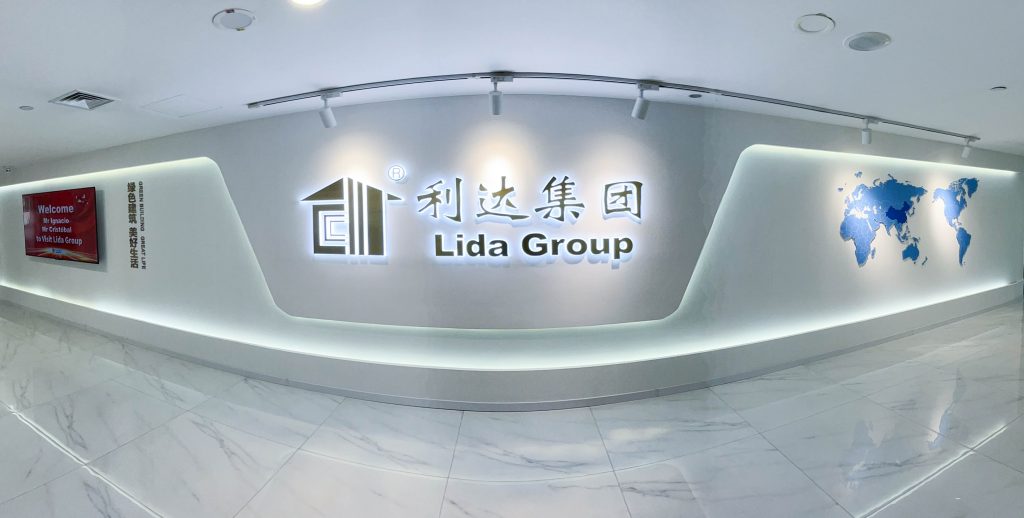
Related news
-
Lida Group’s Temporary Labor Camps Offer Durable and Efficient Accommodation for Workforce Needs
2025-02-11 17:36:11
-
Mobile Container Apartments by Lida Group Redefine Portable and Comfortable Urban Housing
2025-02-11 17:14:46
-
Lida Group Introduces Innovative Modular Prefab Houses for Sustainable and Affordable Living Solution
2025-02-11 16:53:44
contact us
- Tel: +86-532-88966982
- Whatsapp: +86-13793209022
- E-mail: sales@lidajituan.com


